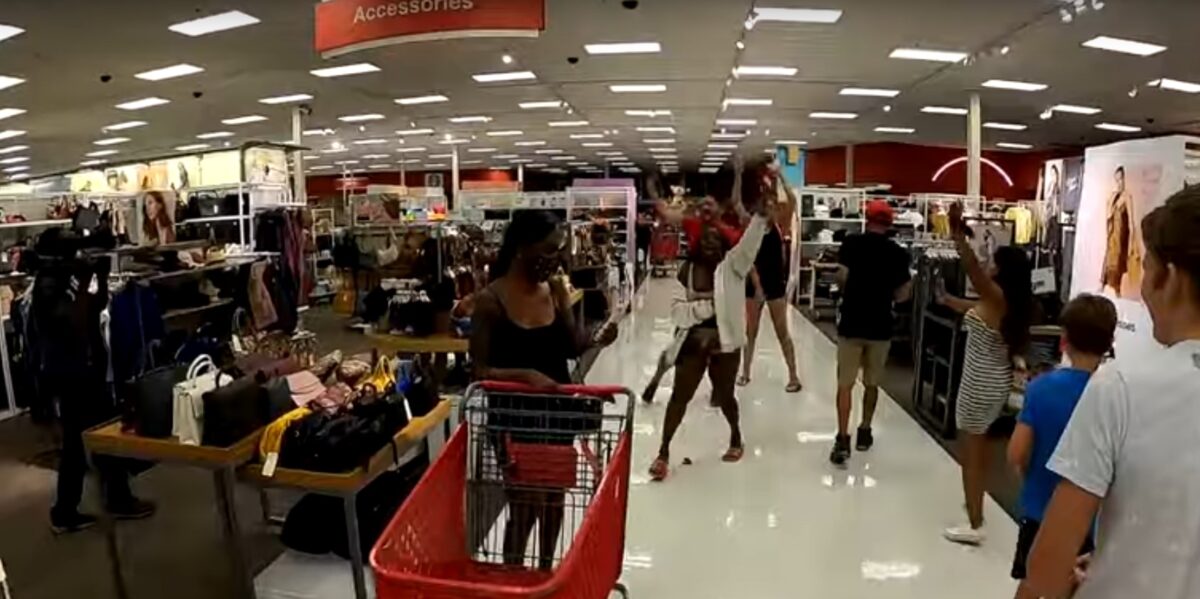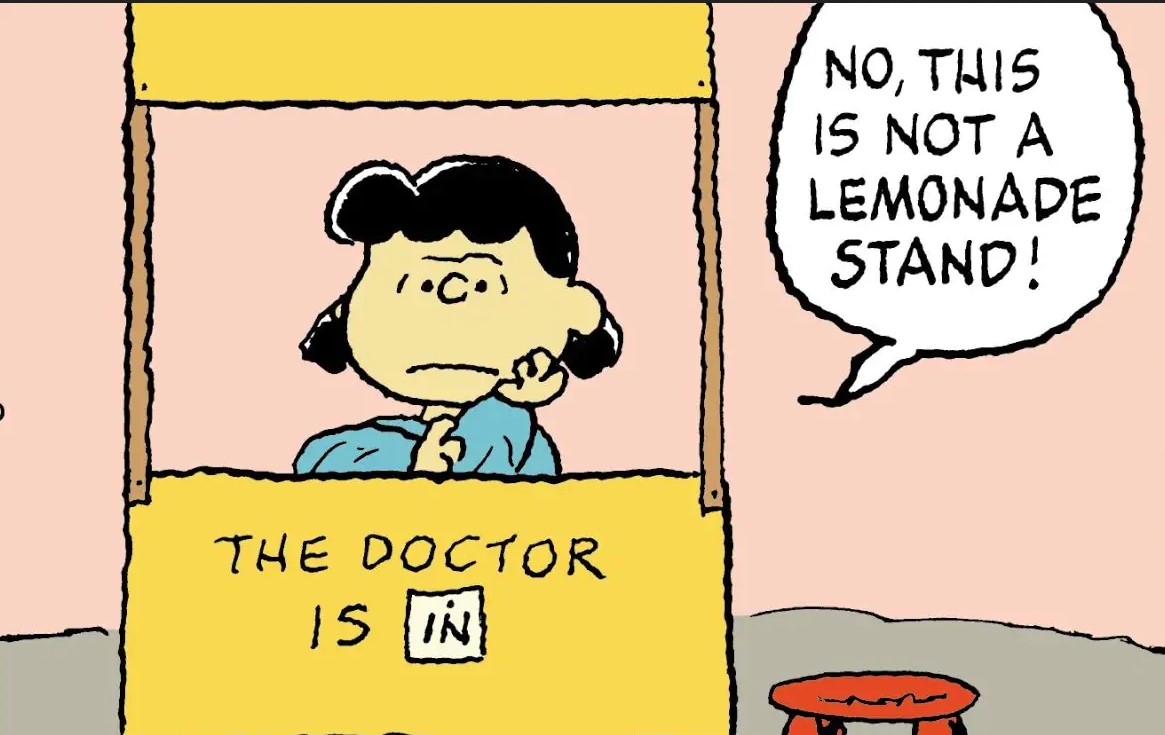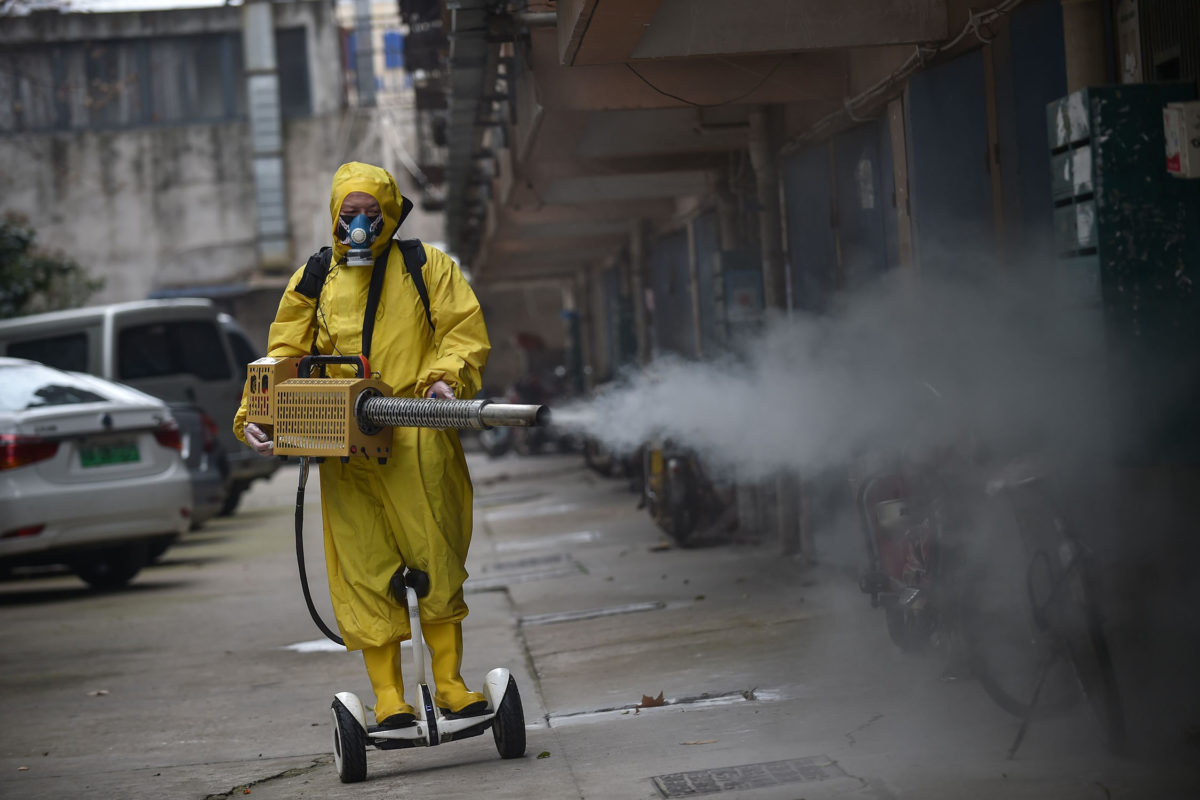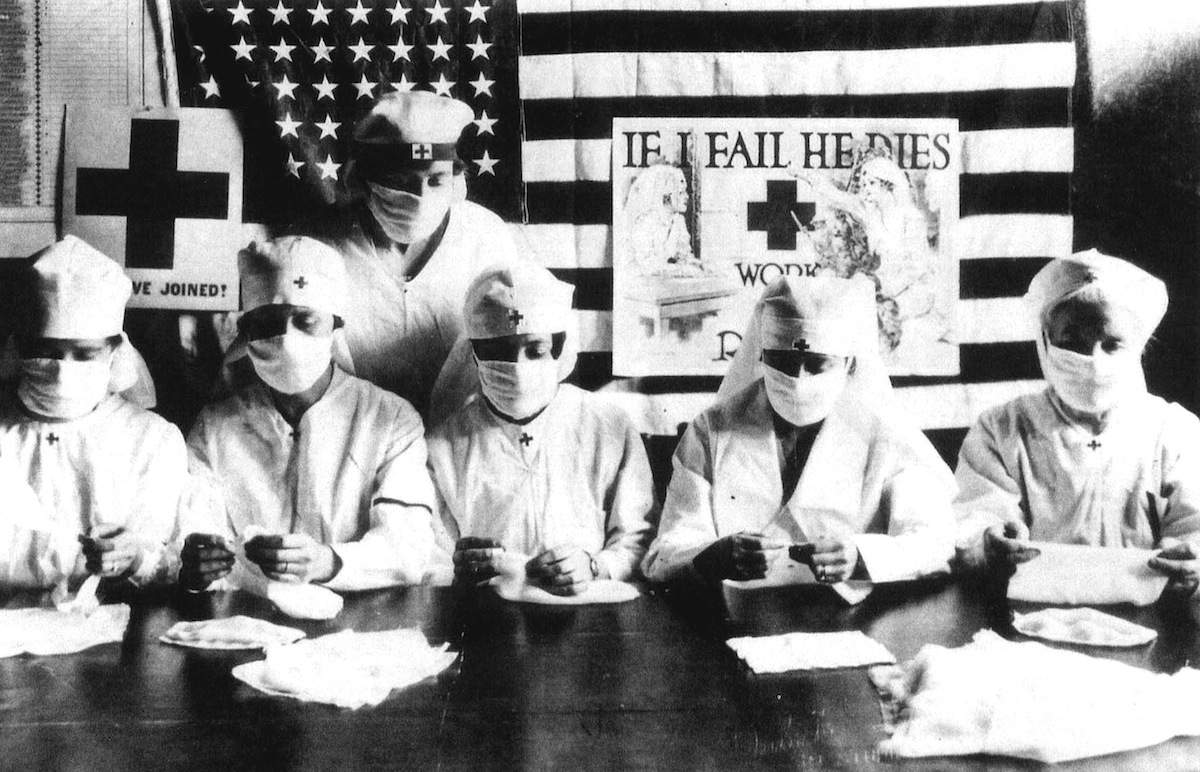They’ve thrown temper tantrums in stores. They’ve congregated in indoor rallies while donning red MAGA caps. Even when people among them die — such as the late Herman Cain weeks after Tulsa — they insist that the COVID protection is all a conspiracy — even after every scientific authority has insisted that the mask is the best way to protect yourself and others against the virus. They believe that any edict urging them to wear a facemask during a pandemic is an assault on their basic freedom.
So it was only a matter of time before they would start hitting the big box stores, adopting the ancient flashmob format — the finest social gathering format that 2005 had to offer.
Anti-maskers in Florida invade a Target pic.twitter.com/Z8TWbl8ihD
— Fifty Shades of Whey (@davenewworld_2) September 16, 2020
A video of maskless demonstrators running amuck in a Fort Lauderdale Target went viral in the last two days. They walked into the store on September 15, 2020 wearing masks. Then they blasted the music. Twisted Sister’s “We’re Not Going to Take It.” A man ripped off his facemask and shouted, “Alright! We’re tired of shopping with masks on. And now we’re taking the masks off. You guys, we’re done with it!”
“Fucking idiots,” replied one of the people videotaping the incident.
The protesters ran like crazed proselytizers through the red decor of Target, urging all and sundry to “take their masks off.”
“That’s the only way it’s going to work! Is if we all unite!” shouted one woman.
They were allowed to do this for at least five minutes. One Target employee aloofly tried to intervene, not knowing what to do and mumbling something about having a nice day. But one of the agitators cried back, “Hey, you have a nice day, man!”
The Huffington Post‘s Jenna Amatulli was one of the first on the story. One of the protesters told her, “Don’t force me to wear a mask. Because it’s my right not to wear one!”
This was clearly the beginning of a makeshift movement. Cristina Gomez was one of the protesters. In a video that Gomez posted to Facebook (mirrored above), a man standing on the bed of a truck in a parking lot, shouted, “How is it that when their mask is working that I have to wear one too? And here’s the bottom line, okay? We’ve been using the medical exceptions. We’ve been using the religious exceptions. And that’s all fine and good. But no more exceptions! No more any of this!”
Gomez then pans her camera to a group of kids and shouts, “Can we get the kids? The cool kids? These are the cool kids. These are the future real men. Grown future grown men [sic] that are not wearing a mask.” Preying upon the innocence and vulnerability of kids is very much a part of this operation.
In the video, a young man by the name of John Gustavo, who claims on his Facebook page to be an “honest journalist,” then proceeds to interview this rowdy bunch — much in the manner of a Daily Caller reporter embedded within a Trump rally. What’s important is that these protesters look as if they could be taken seriously. And if that means using a flashmob format that appears to have emerged from an action plan or looking important enough to attract illusory “media attention,” this too is part of the deal.
At no point in any of the footage that I have reviewed do these protesters consider their maskless activity to be dangerous or infectious. And as I was to learn in a phone call on late Wednesday afternoon that I had with a Fort Lauderdale assistant police chief, the concern for public health clearly wasn’t shared by the authorities.
I wanted to know what Target planned to do about this. Because this incident seemed to me a baleful escalation of all the other maskless rallies. I was able to get in touch with Target’s Danielle Schumann by telephone. She pledged that she would provide me with a specific statement on how Target planned to respond to the incident. (As of Wednesday evening, despite a followup phone call to Schumann giving Target an opportunity to respond, I was not in receipt of any such statement. Nor has the company’s Twitter feed produced any statement condemning the maskless flashmob.)
[UPDATE: Schumann did send along Target’s statement not long after I filed this piece. Here it is below:
We shared earlier this summer that Target requires guests to wear masks whenever they’re shopping in our stores. Our priority remains the health and safety of our team and guests and we communicate our mask requirement through signs in our stores, overhead announcements and reminders from team members at the front of our stores.
We’re aware of the group of guests who came into the store last night and we asked them to leave after they removed their masks and became disruptive and rude to other shoppers.]
Schumann was very nice, but did not answer numerous questions that I put forth to her about how Target would contend with unruly shoppers without masks in the future or even how they had coordinated with the police. She did confirm with me that Target had a nationwide ban in place that went into effect on August 1, 2020. But that was all that I was able to get out of her.
I made calls to the City of Fort Lauderdale to determine if they planned to shift their policy after this incident. My calls were not returned.
Interim Assistant Chief Frank Sousa of the Fort Lauderdale Police Department was nice enough to get in touch with me. Given the tendency of protesters of any stripe to push their shenanigans further, I had many questions about how the police was enforcing Executive Order 20-21 from the Broward County Administrator, which specifically prohibited people from entering establishments without a mask.
Sousa told me that the police had arrived at the Target, but the protesters had disappeared. They had only spoken with the store’s loss prevention officer. There was some talk of a guy in a T-shirt.
“There was no further action taken,” wrote Sousa to me in an email. “I do not know if you are aware but the individuals in the video originally complied with the E.O. issued by the County by entering the store with their mask on.”
I wrote back: “Are you basically saying that if someone were to go into a store with a mask on, that the executive order would not be enforceable?”
There was some back-and-forth. The emails got longer. Finally, Sousa telephoned me. I tried to lighten the tension from our feisty email exchange by joking about how we had both lucked out by being on the right coast, given the orange skies on the Pacific. He laughed.
Sousa informed me that, despite the executive order, walking around without a mask was not a crime. The only consequences were a civil fine.
Well, how do you expect people to comply with the executive order?
“We educate.”
How?
Sousa declined to say, but he suggested to me that there wasn’t rampant non-compliance in Broward County.
“They’re there to make a statement,” said Sousa of the Target group. “It’s the First Amendment.”
But doesn’t putting other people’s health at risk belie free speech?
“It’s not the police’s position to be the opinion police.”
I suggested that there were some situations that transcended mere opinions. I asked Sousa repeatedly if he would consider shifting this policy. I asked him if he considered walking into a store without a mask and endangering other people’s health to be riskier than, say, protesting outdoors without a mask.
He said he didn’t have an opinion.
Sousa suggested that there had been some enforcement of people not wearing masks indoors. Citations as well as fines. But he told me that he couldn’t offer me a precise answer because he didn’t have the stats in front of him. Which was a completely reasonable answer. But ultimately he believed that the Target incident was a free speech issue.
“They have their First Amendment rights. There is a county order.”
I liked Sousa. He seemed like the kind of man I could probably have a beer with, but only if he left his gun and his billy club at the station. Still, there was a growing tension to our exchange, one that I was able to gauge through the increased number of surly “Sirs” he barked at me over the phone as I carried on with my questions. I respectfully pressed Sousa on hypothetical changes to this policy, especially if the infection rate or the number of cases went up in the Fort Lauderdale area. But he declined to answer.
The takeaway here is that, if you are in the Florida area and choose to lead a maskless rebellion within the expansive confines of an indoor shopping mall, you will probably not be arrested by the police. The Fort Lauderdale Police, for one, certainly isn’t going to press you with additional charges. Especially if you have the foresight to leave the premises before the police arrive.
If you happen to be one of those people who sees masks as an affront to your freedom rather than an essential tool that will help flatten the curve, then, hey, sky’s the limit! Nobody will stand in your way. Not Target. Not the police. And certainly not the mayors and the governors who refuse to evoke protective regulations that can decrease COVID cases and save lives.
SEPTEMBER 16, 2020 8:30 PM UPDATE: I just received a statement from Target. I’ve added it to the story.




